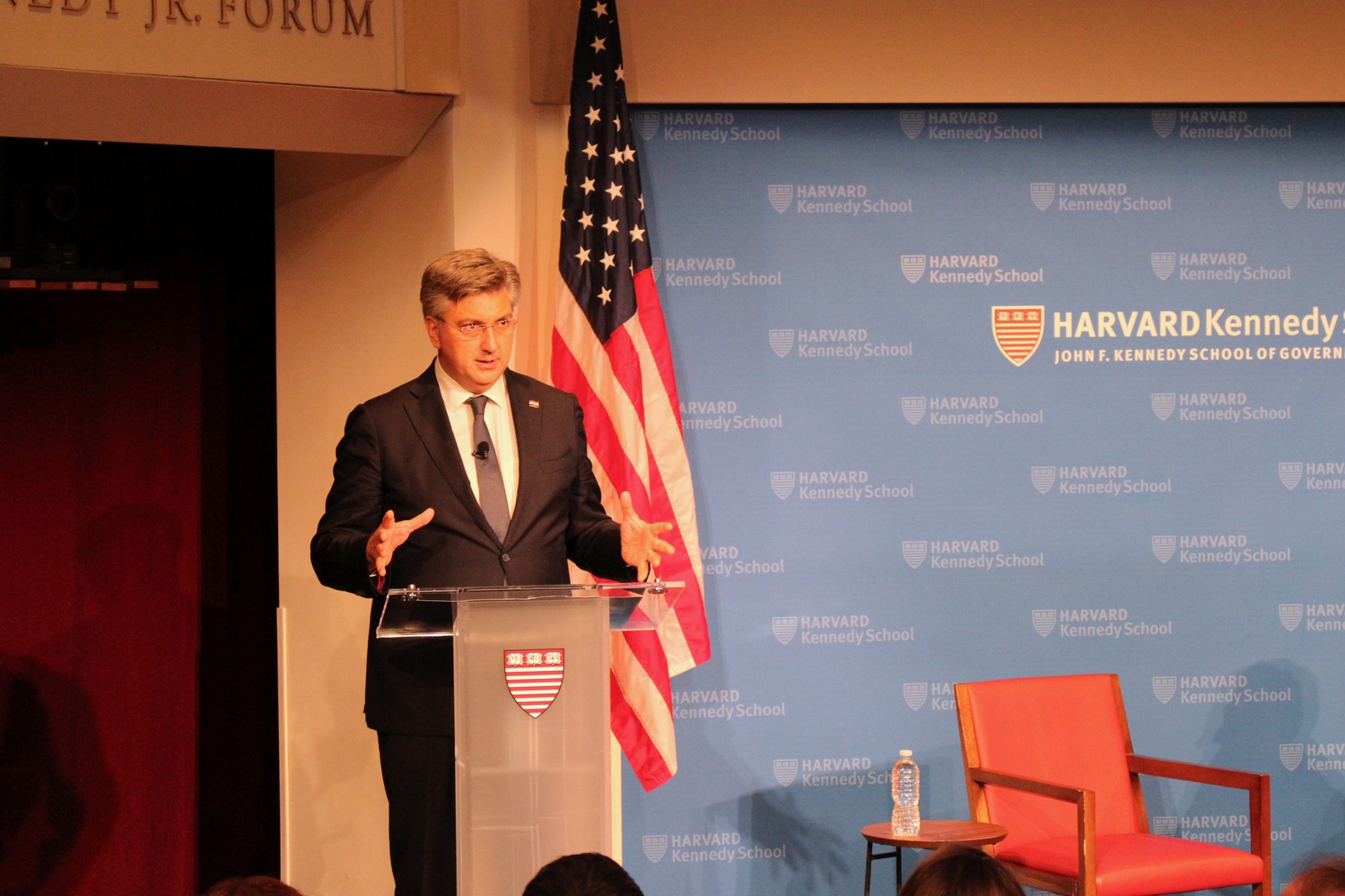
News
Summers Will Not Finish Semester of Teaching as Harvard Investigates Epstein Ties

News
Harvard College Students Report Favoring Divestment from Israel in HUA Survey

News
‘He Should Resign’: Harvard Undergrads Take Hard Line Against Summers Over Epstein Scandal

News
Harvard To Launch New Investigation Into Epstein’s Ties to Summers, Other University Affiliates

News
Harvard Students To Vote on Divestment From Israel in Inaugural HUA Election Survey
Croatian Prime Minister Andrej Plenković Discusses Russia’s War in Ukraine at Harvard IOP Forum

Two days before Croatian Prime Minister Andrej Plenković is set to address the United Nations General Assembly in New York, he gave Harvard affiliates a preview, discussing the global consequences stemming from Russia’s escalation of its invasion of Ukraine at a Harvard Institute of Politics forum Wednesday evening.
Plenković said discussions at the UN this week have centered around Russia’s war on Ukraine, which he described as an “unprecedented violation of international law where one permanent member of the Security Council has aggressed and invaded a neighboring country, also [a] member of the United Nations.”
Earlier on Wednesday during a morning address to the nation, Russian President Vladimir Putin announced a “partial mobilization” of Russia’s military reservists and issued an implicit threat that Russia was prepared to use nuclear weapons against the West.
“In the event of a threat to the territorial integrity of our country and to defend Russia and our people, we will certainly make use of all weapon systems available to us,” Putin said, according to the Kremlin’s transcript of his speech. “This is not a bluff.”
Plenković said Putin’s most recent threats “makes this moment, this UNGA week, very specific.”
“It’s not very often that we discuss the potential of the use of the nuclear weapons in the world,” Plenković said. “We were trying to de-escalate, we were trying to disarm, we were trying to control — this was the objective of the international community within the United Nations system.”
Russia is an authoritarian regime that does not “really agree with the way that the world is globally governed” and takes a “conflictual” approach to world affairs, Plenković said.
Croatia and the rest of the European Union have relied on French President Emmanuel Macron and German Chancellor Olaf Scholz to negotiate with Putin in recent months because they are “the two strongest and the most influential countries” in the bloc, according to Plenković.
But Plenković said the format for negotiating with Russia might change in the future.
“I personally think that the moment will come where the international community might opt for someone who would be very respected from everyone — including in Moscow — as an international personality who can serve as an intermediator or negotiator or the communicator,” Plenković said. “That is an element that hasn’t been explored so far.”
Plenković also responded to a question from an audience member about the restitution of property that belonged to Jewish victims of the Holocaust from Croatia, saying he will meet with the leader of the World Jewish Congress in New York on Friday.
“We have a dialogue with the representatives of the Jewish community in Croatia and we are in the process of trying to address this issue adequately even though many, many decades has passed,” he said.
“I think there is a lot of goodwill on our side not only to engage into meaningful talks, but to deliver on symbolic gestures that would at least provide some sort of a compensation for the wrongdoings of those who did it almost 80 years ago,” Plenković added.
—Staff writer Miles J. Herszenhorn can be reached at miles.herszenhorn@thecrimson.com. Follow him on Twitter @MHerszenhorn.
Want to keep up with breaking news? Subscribe to our email newsletter.
